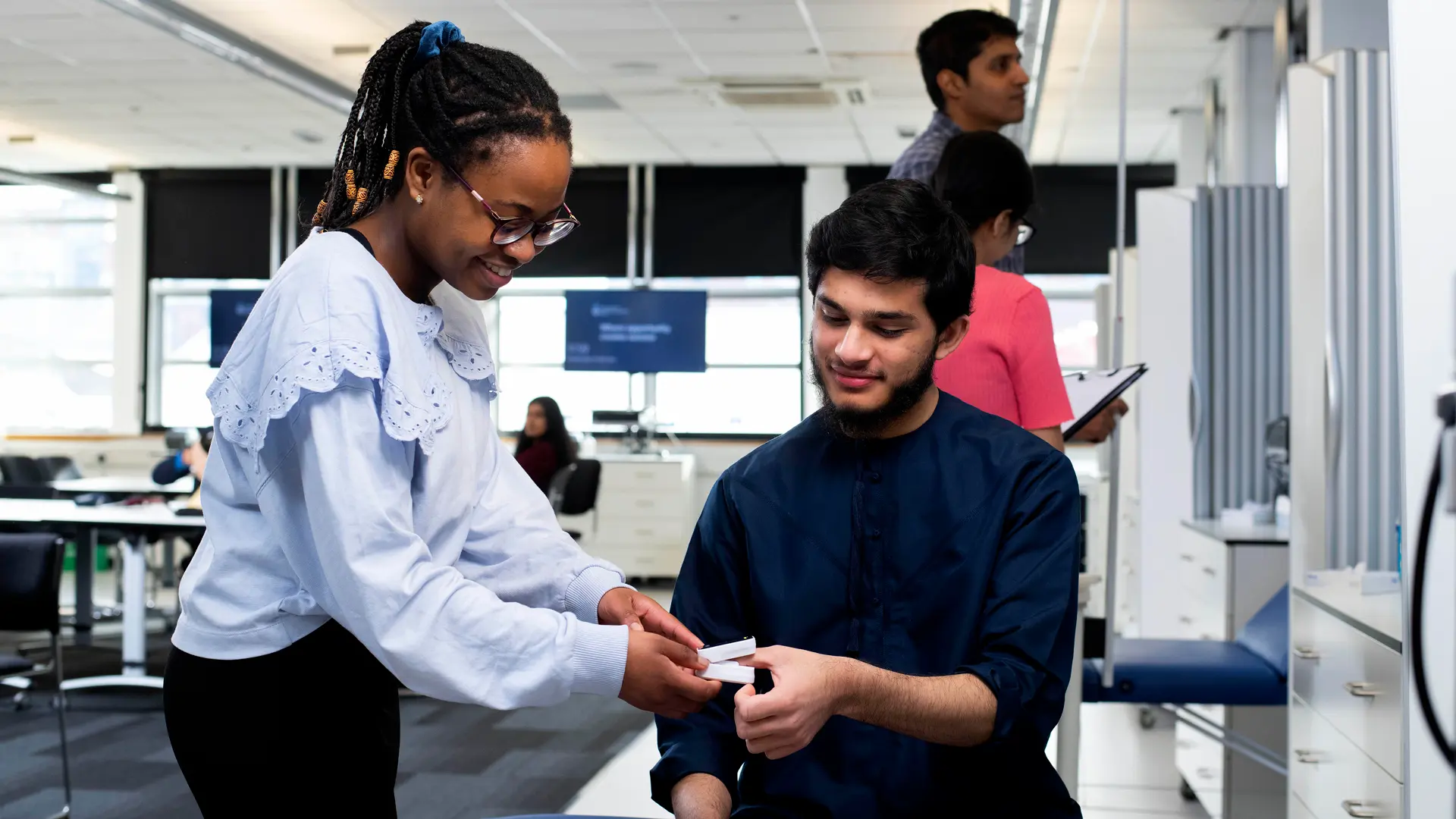Enjoy an excellent learning environment with state-of-the-art industry standard pharmaceutical science laboratories and a newly refurbished pharmacy practice suite with flexible teaching spaces and clinical skills areas to prepare you for a career as a pharmacist.
Why study with us
- Our MPharm is fully accredited by the General Pharmaceutical Council (GPhC).
- Pharmacy courses at UCLan ranked 1st in the North West for graduate prospects (outcomes and on-track). Complete University Guide 2024.
- Opportunities for undergraduate research through our Undergraduate Research Internship Scheme.
Future Careers and Opportunities
MPharm graduates will need to undertake a pre-registration training year to become a qualified pharmacist. You may then consider postgraduate study, or training to become an independent prescriber.
Postgraduate study could allow hospital-based staff progression to higher AfC banding and community practitioners a move into practice-based/GP-patient facing roles.
Career options for pharmacy graduates
MPharm graduates undertake a pre-registration year to become qualified pharmacists. You may then consider postgraduate study or training to become an independent prescriber.
Studying pharmacy could lead to a future career as a:
- Pharmacist
- Clinical Trials Assistant
- Quality Control Assistant
- Clinical research associate
Take the next step

Study a degree at UCLan
Interested in studying a degree with us? From exploring accommodation to visiting us at an Open Day, find out everything you need to know about life at UCLan.







